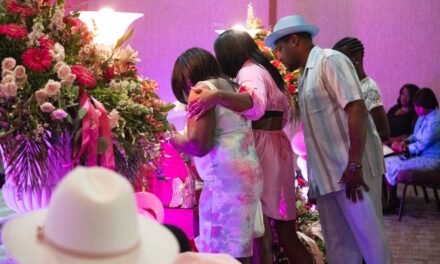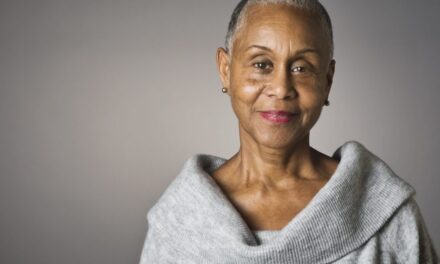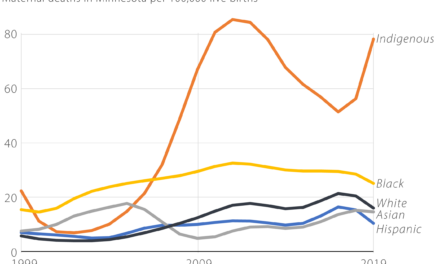Lowell, MA, Sept. 06, 2023 (GLOBE NEWSWIRE) — The Black Women First (BWF) initiative, administered by the Health Resources and Services Administration (HRSA), Ryan White HIV/AIDS Program (RWHAP), Special Projects of National Significance (SPNS) with funding from the Minority HIV/AIDS Fund, recently wrapped up three years of implementing and evaluating bundled evidence-informed and evidence-based interventions at 12 sites nationwide. The initiative marked the first-ever national project dedicated to improving the health outcomes of Black cisgender and transgender women with HIV. Led by the University of Massachusetts Lowell (UMass Lowell), with evaluation support from the Boston University Center for Innovation in Social Work and Health (CISWH) and implementation expertise and technical assistance from AIDS United, sites demonstrated bundled interventions featuring multi-pronged strategies to engage and retain Black women with HIV into treatment and care. These strategies included:
- Patient navigation, case management, and peer engagement through technology to access virtual appointments and online support groups;
- Red Carpet Care experiences that provided direct access to resources, including food, housing, technology and employment;
- Services to help manage disclosure and experiences with stigma;
- Trauma-informed care;
- Intimate Partner Violence (IPV) screening and related services; and
- Self-efficacy and health literacy services.
“The strategic bundling of these interventions recognized the diverse backgrounds, experiences, and culturally relevant care needs of Black women,” says Serena Rajabiun, Principal Investigator, UMass Lowell. “Black cisgender and transgender women with HIV, including those ages 50 and older and non-U.S. born women, require tailored services to feel supported in treatment and care.”
The BWF initiative’s approach paid off. After three years, sites reported marked increases in Black cisgender and transgender women’s linkage to care within 30 days of HIV diagnosis, retention in care, well-being, maintenance of viral suppression, stigma reduction, resiliency, and quality of life. Clients reported improvements in their health literacy, coping skills, and ability to access behavioral, clinical, and support services, coupled with reduced feelings and experiences with stigma and discrimination. Intervention sites’ success extended beyond HIV, introducing routinized screenings and linkages to care for common clinical and behavioral health comorbidities, including substance use disorders, depression, hypertension, diabetes, obesity, hepatitis C, osteoporosis, and cervical, breast, and colon cancers.
These successes reflect the strong relationships built by sites with clients. Interventions were overwhelmingly led and staffed by Black cisgender and transgender women, while clients were invited to help develop and refine programming through participation in surveys, interviews, focus groups, and advisory boards. As Alicia Downes, Director of Federal Programs at AIDS United, explains, “BWF initiative sites sought and trusted their clients’ experiences as Black cisgender and transgender women. They understood best how to describe their experiences navigating their lives and care.”
As a result, the interventions of the BWF initiative were able to directly address and support clients’ experiences with dire and often intergenerational impacts of poverty, interpersonal violence, racism, and stigma. One participant explained that her site’s initiative connected her to a support network of other Black women with HIV with similar experiences. “For the first time, I felt free to communicate my feelings about HIV. I had friends who supported me without judgment, checking in to ask, ‘Have you taken your medications?’” Another participant said she chose to join her clinic’s community advisory board to continue building their capacity to reach Black women like her. She says, “My drive to be a part of the [BWF] initiative is probably because I have lived experience. I know what it is like to be discriminated against by a medical team.”
The start of the BWF initiative in 2020 could not have been more timely. Named a National HIV/AIDS Strategy priority population in 2021, Black women have always borne a disparate burden of HIV. Less than five years after the start of the epidemic in 1981, the CDC reported that Black women accounted for over one-half of all AIDS cases among women, and had a cumulative incidence rate 13.1 times that of white women. While annual HIV infections have remained relatively stable among Black women since 2015, rates of new HIV infections among Black women are 11 times that of white women and four times that of Latina women. In 2021, Black cisgender women accounted for 53% of new HIV cases among cisgender women, while Black transgender women represented over 46% of new HIV cases among transgender women—staggering numbers considering that Black women together account for less than 15% of all U.S. women.
Ultimately, the results of the BWF initiative will further the U.S. Department of Health and Human Services’ (HHS) Ending the HIV Epidemic (EHE) and the Health Resources and Services Administration’s (HRSA) Strategy to Address Intimate Partner Violence. A special institute about BWF, entitled “Ryan White HIV/AIDS Program (RWHAP) Black Women First Initiative: Promoting Care for Women, by Women,” will take place during the United States Conference on HIV/AIDS (USCHA), at the Marriott Marquis in Washington, DC, on September 7, 2023, from 8:00 AM to 11:00 AM. Participants in the session will hear about activities and outcomes of the BWF initiative overall, and from each of the sites, as follows:
- TogetHER by Abounding Prosperity, Inc. in Dallas, TX
- G.E.M.S. (Goal Setting, Empowerment, and Motivating my Sisters) by AccessMatters in Philadelphia, PA
- Black Women’s Health Initiative by AIDS Care Group in Chester, PA
- Women Evolving by AIDS Foundation of Chicago in Chicago, IL
- The WHIP Program (Women’s Health Initiative) by Alliance for Positive Change, NYC
- SHE Program (Sisterhood for Health Equity) by the City of Philadelphia in Philadelphia, PA
- B.WOW! (Black Women Organized for Wellness!) by Grady Health System in Atlanta, GA
- Care and Treatment Services (CATS) NOLA by Institute of Women & Ethnic Studies in New Orleans, LA
- Black Women First Initiative by Positive Impact Health Centers in Atlanta, GA
- SIGH (Sisters Inspiring Growth and Healing) by Quality Comprehensive Health Center in Charlotte, NC
- HERS+ (Health, Empowerment, and Recovery Services plus) by UCSF Women’s HIV Program in San Francisco, CA
- Stepping Stones by Volunteers of America, SE Louisiana in New Orleans, LA
“From the start, HRSA funded sites represented Black women’s diverse, intersectional identities and experiences,” adds Downes. “The sites’ multifaceted, bundled interventions engendered trust, providing Black women access to a support network that encouraged engagement in an array of clinical and behavioral health services that extended beyond HIV treatment.”
“We are proud to have supported the adaptation of these successful interventions,” says Rajabiun. “Their strategies will provide frontline service agencies across the U.S. access to replicable, innovative solutions to engage and retain in treatment and care historically underserved Black women with unmet clinical and behavioral health needs.”
###
About University of Massachusetts, Lowell (UML):
UMass Lowell is a national research university offering its more than 18,000 students bachelor’s, master’s and doctoral degrees in business, education, engineering, fine arts, health, humanities, sciences and social sciences. UML’s Center for Population Health’s mission and vision is to establish long-term interventions in diverse populations, that effectively reduce the prevalence of diseases and improve overall quality of health and well-being.
About AIDS United:
AIDS United has the singular mission of ending the HIV epidemic in the United States through strategic grant-making, capacity building, and policy and advocacy. AIDS United bridges policy with grant-making and capacity building; linking the world of HIV service and community-based organizations with the public health, medical, advocacy and social justice communities to respond to the domestic HIV epidemic. Learn more about AIDS United here.
About the Center for Innovation in Social Work & Health at BUSSW
CISWH is dedicated to expanding the impact of social work in health care and public health in order to improve the health and well-being of vulnerable populations nationally and globally. CISWH seeks to improve outcomes, patient experience, and population health; reduce costs; and promote health equity and social justice. The Center supports social work leadership in health through cross-sector collaboration with public health, medicine, health economics, technology, and other relevant disciplines. The Center accomplishes its mission through research, community partnerships, policy development, and by providing technical assistance and educational opportunities. Learn more here.
Serena Rajabiun Principal Investigator (PI), University of Massachusetts Lowell (UML)
This project is supported by the Health Resources and Services Administration (HRSA) of the U.S. Department of Health and Human Services (HHS) award # U90HA39727. The contents are those of the author(s) and do not necessarily represent the official views of, nor an endorsement, by HRSA/HHS, or the U.S. Government. Visit TargetHIV.org/BlackWomen for more information.






